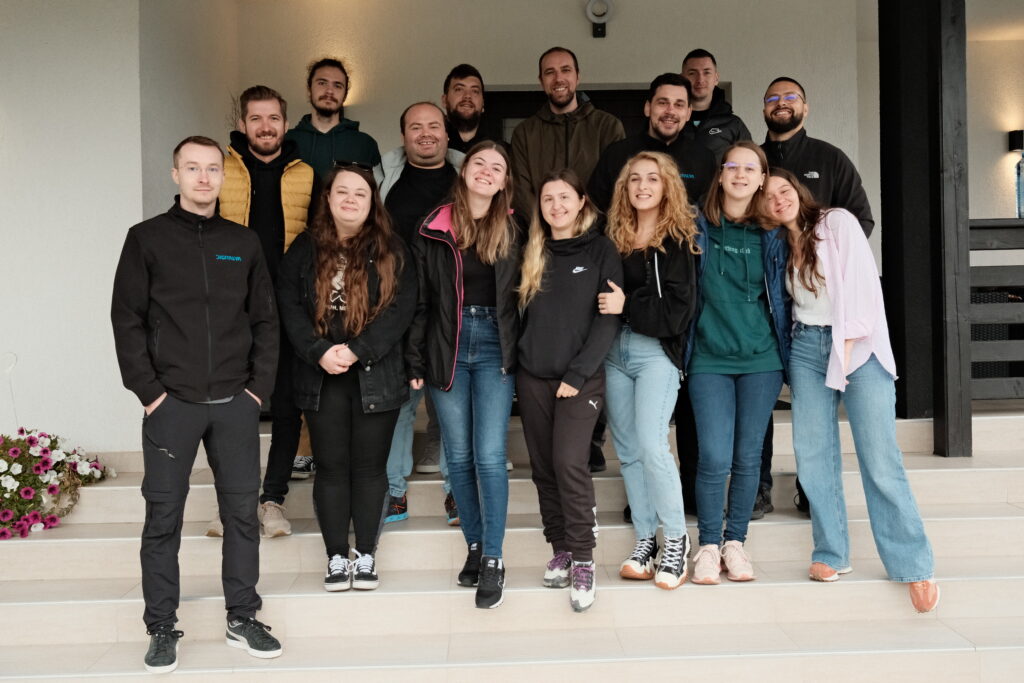The startup world is a fascinating universe, with a dynamic of its own, with its ecosystem. It involves not only a technological novelty but also a great deal of financial strategy to ensure survival and growth, marketing tactics, understanding of the market, and consumer psychology, not to mention employer motivation and retention.
That is to say, there is a lot on the plate of startup founders and CEOs. Luckily, some entities specialize in supporting startups to grow their chances of success. Incubators and accelerators are important elements of the startup ecosystem, but there is always the question of incubator vs accelerator; which one should you aim for?
This comparison will guide you in deciding which program to choose for your startup.
Before talking about what to consider when joining an incubator program or an accelerator program, let us discover each.
1. What is an accelerator program?
As the name states, it is a program (implemented by a player institution in the startup ecosystem) that aims to accelerate the life cycle of startups through intense education and mentorship, finalized with receiving investment capital. Think of it as an MBA program (minus the investment) where professionals expand their knowledge and share experiences in a development-focused environment, where everybody speaks “startupian”.
Startup accelerators usually organize periodic calls for companies to join the program and run a selection process. Accelerators work with young companies that already have a business plan, a scalability model, and a minimum viable product or, as it is usually called, an MVP. If you want to understand more about what an MVP should be, we have found 5 minimum viable examples that can help you have a clearer grasp of what is required.
Furthermore, considering what accelerators do, there are some distinct factors that define startup accelerators.
Limited period of time and on-site activity
Accelerators develop programs that spread over a few weeks or months. The maximum time frame is usually six months. Although it seems a very short period of time for a company to reach relevant results, the programs are designed to provide intense education, so the founders and their teams are exposed to a large volume of useful information that ”pushes” their development at a higher speed than on usual basis and increases the chances of success.
During an accelerator program, the founders and their teams relocate temporarily to a coworking space offered by the accelerator, so they can focus primarily on seminars, workshops, meetings, and the objectives they have set when entering the program.
Group of companies
One of the means to provide learning opportunities to startup teams is exposure to other startups. This means that an accelerator welcomes in each program, in their office space, a group of young companies that learn together, exchange best practices, and, ideally, collaborate. Founders, CEOs, and operational teams can pick each other’s brains to find new approaches to various challenges.
Mentorship
Apart from specific seminars that tackle relevant notions of marketing, consumer behavior, sales best practices, or finance, the fast learning process is also delivered through industry experts who mentor startups. Based on specific objectives that founders have set when joining the accelerator program, mentors guide the teams to achieve those objectives, which would eventually translate into scalability.
Demo-day
Accelerators usually end with a “graduation” day, called a demo-day, when startup representatives pitch not as much as their ideas, but their business models built around an innovative concept with a focus on the growth potential. The aim is to obtain seed investment in exchange for equity, in a small amount.
On such demo-days accelerators invite representatives of venture capitals, business angels, and other startup players that may be interested in the businesses being pitched. It is another context for great networking opportunities. Even though not all the startups in the accelerator win the final prize, they can still secure investment from the interested parties or the accelerator itself, provided they have achieved their objectives and have a viable growth model.
Perhaps now, having in mind the specifics of an accelerator, the answer to the dilemma incubator vs accelerator starts to take shape. Let’s see what the specifics of business incubators are.
2. What is an incubator?
A startup incubator is also a program designed to develop innovative ideas into successful business models. At this point, it doesn’t seem much different from an accelerator. However, having the same ultimate objective – startup growth – the difference between incubator and accelerator is that incubators don’t limit to already established companies with minimum viable products and a validated business model. Actually, incubators support startups when they are in very early stages, beginning with disruptive ideas, even before being integrated into a business model. Let’s see what the defining elements of an incubator are.
No specific time-frame
When we compare incubator and accelerator programs, some of the key differences stand in the period of time. While the accelerators usually focus on pushing the growth, incubators focus primarily on growing the company steadily and in the long run. This is why they don’t set a fixed time frame, but rather work with continuous education and development.
Idea stage
As mentioned above, incubators work with founders who have a very early stage company and not yet a business model. Thus, they focus more on the innovative character of the idea and work to verify product-market fit. To get more clarity on what such ideas can be, we selected the trending mobile apps in 2021. If you prefer web applications, we also looked at some very interesting web app ideas to serve as inspiration.
Incubators can guide startups even in the administrative processes regarding intellectual property and establishing a company.
Mentorship and collaboration
Similar to accelerators, incubators provide networking opportunities, learning from mentors, collaborating with other startups or established companies, and sharing experiences. However, what is different from an accelerator, is that this learning environment does not depend on the presence in a given space, where the founders would need to relocate.
No investment capital involved
Incubators are usually run by government institutions and organizations that seek to innovate their environments, markets, communities. They can be universities, professional clusters, and even corporations that want to “outsource” the innovative processes. As such, their focus is mainly on transforming disruptive ideas into marketable digital or physical products in the pursuit of long-term innovation. As consequence, investment with an equity stake is not a practice associated with incubators.
Local startups and ongoing application process
Due to the open-end timeframe of an incubator, there aren’t specific calls for applications as in the case of an accelerator. Also, considering that their main purpose is bringing innovation to communities, incubators address, most of the time, local startups.
In the larger picture of a startup’s life cycle, founders can start with an incubator program and grow their way up to an accelerator program. One important element along this journey is the minimum viable product (MVP), that would prove the product-market fit. To many, the step from idea to an MVP can be overwhelming, but there are solutions. For example, we have created a workshop that can help startup owners to validate their idea within 5 days, by building a clickable prototype. This way, you can have product validation with a design sprint workshop, without spending enormous amounts into developing an MVP and realizing it is not what consumers need.
Having understood what these two types of startup programs do, we’re starting to narrow down the incubator vs accelerator debate. But before we pin down the decisive arguments, let us make one more stop. Another important player in the startup ecosystem, related to our subject, is venture capital.

3. What is venture capital?
Venture capital is a type of investment that startups obtain from private investors in exchange for various amounts of equity.
Venture capital is often invested by venture capital firms. These are private organizations that gather individual investors and invest their funds into startups and companies with high growth potential. As in any investment, the goal is to gain profit. As such, the startups who show the greater potential in turning into a company that would get acquired by a large enterprise or be listed on the stock exchange market, the higher the chance of securing venture capital.
We also speak of venture capitalists in the startup world. These are “serial investors” who seek fast scaling companies in which to invest. The sums invested are considerable, and so is their interest in getting the business successful and growing. This is why venture capitalists or venture capital firms also get involved in the startup’s management, while offering, too, know-how, mentorship, and networking opportunities.
For many founders, receiving venture capital investment can be a bitter pill to swallow. The degree of control and freedom of decision-making is, consequently, altered and, sometimes, disproportional to the equity transferred. On the other hand, no matter how disruptive an idea is, without the necessary capital it remains just that – a very interesting idea with high potential.
Another advantage, apart from the obvious, financial one, is that venture capitalists have a lot of experience and know-how regarding business models, markets, best practices, in various industries. As such, their insight and support are valuable contributions for a young company, just entering the market.
Having checked these important elements, we finally arrived at our initial question: incubator vs accelerator, which one to choose?
4. Incubator vs accelerator – Which one do you need?
As we mentioned at the beginning of the article, it is not a debate about which program is better, but a matter of which one would benefit your company the most. It is about what your startup needs at this stage.
The key differences between accelerators and incubators concern the time frame (limited to a few months for accelerators and open-end for incubators), the possibility of receiving startup funding, and the application criteria (working business model and MVP for accelerators vs potential for innovation and growth for incubators).
Following these characteristics, you can decide whether to join an incubator or apply for an accelerator considering:
The stage of your startup
If you are in the idea phase and just signed the papers for founding the company, then an accelerator is a step a little further in the future of your startup. You can begin by applying for an incubator and building upon your idea. You can benefit from the experience and know-how of incubator mentors to shape a good business model, find out who your target market is and test if the idea is well received by its public. Again, you can have a run for your idea, much before jumping into building an MVP, with a design sprint workshop.
If you already have a validated business model and an MVP and you are now ready to go to market, then applying for an accelerator would be a good option. In the best-known accelerators, competition is high, but do not let this discourage you. Focus primarily on the ones that offer most of the experiences that you need, consider the investment they can secure at the end of the program, who their investors are, and who the mentors are.
Need of investment. Equity stake
This is quite simple to check. Between accelerators and incubators, the first ones also offer seed investment in addition to knowledge, networking, and mentorship.
The question is if the amount of funding that an accelerator makes possible is the right amount for your company, considering its financial needs, of course, but also the costs. Don’t forget that venture capital comes in exchange for equity and a certain degree of management involvement, in various amounts.
Relocation
Startup accelerators require on-site presence for the participant startups, so take into account the willingness and feasibility of moving to another city or country for several weeks. While accelerators offer coworking space and access to office equipment and facilities, transport and accommodation are the startups’ responsibilities. Evaluate the costs, especially if you consider taking along team members. Also, ask yourself how your business activity is impacted by your absence for a couple of months.
For business incubators, because there is no fixed timeframe, there aren’t usually requirements for relocation. However, you should be able to attend most of the seminars, meetings, and events organized by the incubator, which raises the question of physical presence. This is also why, usually, it is the local startups that participate in incubators programs.
Having all this in mind, take your time to figure out which type of program best suits your startup profile.
To give you a more in-depth look, here are some of the best-known accelerators.
5. Top accelerators worldwide
Most of the top startup accelerators are found in the US: Y Combinator in California, who worked with Dropbox, Reddit, and Airbnb; Techstars in the state of Colorado; The Brandery in Cincinnati; 500 Startups, also in California, who worked with Udemy, Canva, Intercom, and GitLab or Credit Karma.
There are, however, renowned accelerators in other parts of the world: Europe, South America, or Russia. One of the best known is, for instance, Startupbootcamp in London, UK, which onboard leading brands such as Amazon, Vodafone, Deutsche Bank, ING, Allianz, Intel, or Airbus Group to support participating startups.
In South America, the best known is, probably, Startup Chile, located – you guessed- in Santiago, Chile.
For companies focused on cybersecurity, IoT, and big data, there is Internet Initiatives Development Fund (IIDF) in Moscow, Russia, which also runs a pre-accelerator program.
In conclusion, the question of incubator vs accelerator is not as much a question of which is what, but of what your startup needs.
Do you have a running business model and a minimum viable product and you look for investment? Then consider applying for an accelerator.
Are you at the very first steps, with a brilliant idea, a newly founded company, maybe, a lot of enthusiasm, some great people beside you, but not sure how to go further? Then look for startup incubators in your area.
If you look for some more inspiration on how to turn an idea into a digital product, you can read about our own product development experience with – ClientZen, the first customer experience management platform for B2B digital agencies.








